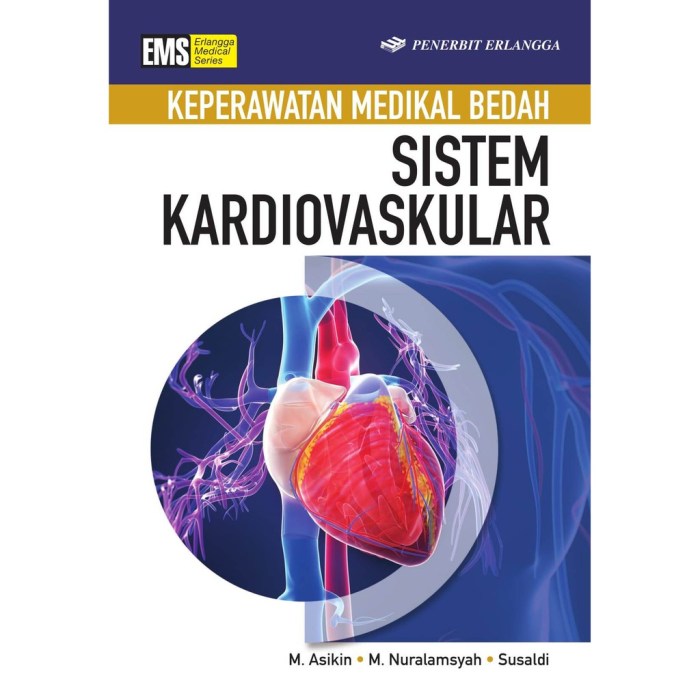Rn targeted medical surgical cardiovascular – RN targeted medical-surgical cardiovascular nursing stands as a beacon of excellence in patient care, providing specialized expertise in the management of cardiovascular conditions. This comprehensive field encompasses a wide range of responsibilities, from patient assessment and monitoring to advanced practice interventions, ensuring optimal outcomes for patients with cardiovascular disease.
Targeted medical-surgical cardiovascular nurses serve as pivotal members of the healthcare team, collaborating closely with physicians, pharmacists, and other professionals to deliver tailored care plans. Their in-depth knowledge of cardiovascular anatomy, physiology, and pharmacology enables them to make informed decisions, optimize treatment strategies, and provide invaluable support to patients throughout their care journey.
Targeted Medical-Surgical Cardiovascular Nursing: Rn Targeted Medical Surgical Cardiovascular

Targeted medical-surgical cardiovascular nurses play a crucial role in providing comprehensive care to patients with cardiovascular conditions. They possess specialized knowledge and skills in assessing, monitoring, and managing cardiovascular disorders, collaborating closely with other healthcare professionals to ensure optimal patient outcomes.
Their responsibilities include:
- Performing physical examinations and collecting patient histories
- Monitoring vital signs and interpreting electrocardiograms (ECGs)
- Administering medications and managing IV therapy
- Providing patient education and support
- Collaborating with physicians, surgeons, and other members of the healthcare team
Cardiovascular Assessment and Monitoring
Assessing cardiovascular function is essential for early detection and management of cardiovascular disorders. Targeted medical-surgical nurses use various techniques to evaluate:
- Heart rate and rhythm
- Blood pressure
- Pulses
- Jugular venous pressure
- Auscultation of heart sounds
Hemodynamic monitoring plays a vital role in managing critically ill cardiovascular patients. It involves measuring hemodynamic parameters such as:
- Cardiac output
- Stroke volume
- Systemic vascular resistance
- Central venous pressure
- Pulmonary artery pressure
Common cardiovascular monitoring devices include:
- Electrocardiograms (ECGs)
- Holter monitors
- Event recorders
- Arterial line catheters
- Pulmonary artery catheters
Management of Cardiovascular Conditions
Targeted medical-surgical cardiovascular nurses play a key role in managing a wide range of cardiovascular conditions, including:
- Coronary artery disease
- Heart failure
- Arrhythmias
- Hypertension
- Cardiomyopathy
Pharmacological interventions include:
- Antianginals
- Antiarrhythmics
- Antihypertensives
- Diuretics
- Anticoagulants
Non-pharmacological interventions include:
- Lifestyle modifications (e.g., diet, exercise, smoking cessation)
- Cardiac rehabilitation
- Percutaneous coronary intervention (PCI)
- Coronary artery bypass grafting (CABG)
- Heart transplantation
Patient Education and Support
Patient education is crucial in targeted medical-surgical cardiovascular nursing. Nurses provide information on:
- Disease management
- Medications
- Lifestyle changes
- Warning signs and symptoms
- Emergency procedures
Nurses also provide emotional support and assist patients in coping with the challenges of living with cardiovascular conditions.
Advanced Practice Nursing in Cardiovascular Care, Rn targeted medical surgical cardiovascular
Advanced practice nurses (APNs) play an increasingly important role in managing cardiovascular patients. They have advanced education and training, enabling them to:
- Perform comprehensive cardiovascular assessments
- Diagnose and manage cardiovascular conditions
- Prescribe medications
- Order and interpret diagnostic tests
- Provide patient education and counseling
Research and Evidence-Based Practice in Cardiovascular Nursing
Research is essential for advancing cardiovascular nursing practice. Targeted medical-surgical cardiovascular nurses engage in research to:
- Improve patient outcomes
- Develop new interventions
- Evaluate the effectiveness of existing practices
Evidence-based practice involves using research findings to guide clinical decisions and improve patient care.
User Queries
What is the role of RN targeted medical-surgical cardiovascular nurses?
RN targeted medical-surgical cardiovascular nurses are responsible for providing specialized care to patients with cardiovascular conditions. They perform comprehensive assessments, monitor patient status, administer medications, and collaborate with other healthcare professionals to develop and implement individualized treatment plans.
What are the benefits of targeted medical-surgical cardiovascular nursing?
Targeted medical-surgical cardiovascular nursing offers several benefits, including improved patient outcomes, reduced hospital readmission rates, and enhanced patient satisfaction. By providing specialized care, these nurses can identify and address potential complications early on, optimize treatment strategies, and provide tailored support to patients.
What are the career opportunities for RN targeted medical-surgical cardiovascular nurses?
RN targeted medical-surgical cardiovascular nurses have a wide range of career opportunities in various healthcare settings, including hospitals, clinics, and rehabilitation centers. They can advance their careers by pursuing advanced practice roles, such as nurse practitioners or clinical nurse specialists, or by specializing in specific areas of cardiovascular care.


